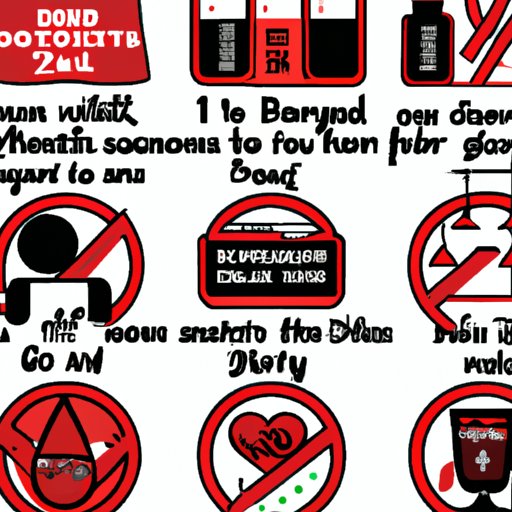
Introduction
Blood donation is a critical and life-saving process that requires a steady supply of donors. Every year, many people require blood transfusions due to medical emergencies or chronic conditions, and donated blood makes a significant difference in these cases. Despite ongoing public education, misconceptions about eligibility criteria for blood donation continue to persist, especially regarding tattoos and piercings. In this article, we will dive into the truth about blood donation and tattoos to dispel common myths and provide essential information to help you determine your eligibility.
Dispelling the Myth: Giving Blood with a Tattoo
One of the most persistent myths regarding blood donation is that you cannot give blood if you have a tattoo. This belief stems from the idea that tattoos increase your risk of contracting blood-borne diseases such as HIV or hepatitis C. It’s essential to know that the American Red Cross and most other blood donation organizations do not disqualify donors with tattoos based on this premise alone.
What You Need to Know Before Donating Blood with Body Art
Before donating blood, it’s essential to ensure your eligibility to avoid any complications or rejection during the screening process. Eligibility criteria for blood donation may vary slightly between different organizations; however, there are some general guidelines you should be aware of, including those for tattoos and piercings.
Firstly, you must wait four months after getting a tattoo before donating blood. This buffer period helps to ensure no lingering effects from the tattoo process, such as infections or diseases. For recent piercings, you should wait six months before donating blood from the date of the piercing. It is also crucial to ensure that the facility where you got your tattoo or piercing uses sterile and disposable equipment. Any facility that sterilizes and reuses equipment is not an optimal location to trust your health and safety.
Getting Inked? Here’s What it Means for Your Blood Donation Eligibility
If you’re looking to get a new tattoo or piercing but plan to donate blood in the future, it’s essential to plan carefully to avoid complications. As previously mentioned, there is a four-month waiting period between getting a tattoo and donating blood. If you have a donation date already scheduled, it’s best to wait until after the blood donation before getting any new tattoos or piercings. For individuals who have a history of hemophilia or are at risk of bleeding, blood thinners, or have a weakened immune system or other health issues, consult a healthcare provider before getting a tattoo or piercing.
The Truth About Tattoos and Blood Donation: Are You Eligible?
If you have a tattoo or piercing and are eligible to donate blood, there are still several criteria to consider before arriving at the donation center. Firstly, for anyone who gave blood with a fresh tattoo, the tattoo must have healed completely before donating. Individuals should also ensure that they are well-hydrated and have eaten enough before donation to prevent faintness or dizziness.
During the donation process, you will undergo a short medical history and physical examination as part of the screening process. If you acquired a tattoo outside of a professional facility or have any other symptoms that may indicate exposure to blood-borne diseases, such as a needlestick injury, you may be ineligible to donate.
Tattoos and Blood Donation: Understanding the Risks and Precautions
While tattoos and blood donation do not pose a significant risk together, the tattoo process itself can potentially lead to complications or infections if not done correctly. During the process of applying a tattoo, needles puncture the skin, leaving openings for bacteria and viruses to enter. Ink itself can also harbor bacteria if not sterilized adequately. After getting inked, there is also a risk of allergic reactions to ink or the chemicals used in the tattooing process.
However, tattooing also poses minimal risks when performed by a licensed and hygienic professional. Licensed tattoo artists must meet state and local regulations for hygiene and safety equipment, such as sterilization tools and disposable needles.
Exploring the Connection of Tattoos and Blood Donation
The tattoo and blood donation industries have been intertwined for a long time. A few unfortunate cases of contaminated blood in the early ’90s were linked to a single tattoo ink brand produced out of Arizona, but tattoo aesthetics had little to do with the incident. Instead, more weight was placed on blood donation policy, which created a nationwide campaign to promote tattoo-free donations. However, modern-day advancements in tattooing have significantly decreased the risks, and blood donation organizations have adjusted their policies accordingly.
Can You Help Save Lives With Tattoos? A Look at Blood Donation Guidelines
In conclusion, tattoos and blood donation have had a somewhat controversial history, but the good news is that myths about tattooed individuals’ ineligibility for donating are just that: myths. As long as you meet the eligibility criteria outlined by your preferred donation center, you can help save lives regardless of any tattoos you may have. Donating blood is always an excellent way to contribute to your community and the greater good. So, if you are eligible, schedule your appointment and see how easy and fulfilling it is to help those in need!
Conclusion
This article explored the misconceptions surrounding tattoos and blood donation eligibility criteria. We established that tattoos are not a disqualifier for blood donation, and individuals with tattoos must follow specific guidelines to ensure their eligibility and safety. The article covered the four-month waiting period for tattoos, the importance of ensuring the facility’s hygiene and safety, and factors to consider during the screening process. Finally, we emphasized the importance of donating blood and encouraged all eligible persons to contribute to this life-saving cause.





